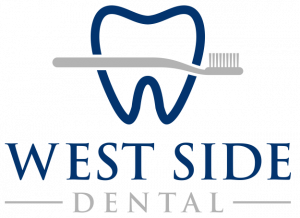Habit Correction Services
Correcting Harmful Habits like Thumb Sucking and Prolonged Pacifier Use for a Healthier Smile!

Table of Contents
Correcting Harmful Habits for a Healthier Smile
Certain habits can negatively impact dental health, particularly in children. Our comprehensive Habit Correction services are designed to address these issues early, ensuring a lifetime of healthy smiles.
What is Habit Correction?
Habit correction focuses on identifying and managing oral habits that can affect the development of your child’s teeth and jaw. Common habits include thumb sucking, tongue thrusting, and prolonged pacifier use. These habits, if left unchecked, can lead to misaligned teeth, improper bite, and other orthodontic problems.
Why Habit Correction is Essential
Persistent oral habits can cause:
- Misaligned teeth
- Speech difficulties
- Altered facial growth
- Increased risk of cavities and gum disease
By addressing these habits early, we can prevent the need for more extensive orthodontic treatment in the future.
Our Habit Correction Approach
Comprehensive Evaluation: Our orthodontist conducts a thorough evaluation to identify harmful habits and assess their impact on dental health.
Customized Treatment Plans: We develop personalized treatment plans tailored to each patient’s needs. This may include behavioral strategies, appliances, and regular monitoring.
Behavioral Strategies: Positive reinforcement and habit-breaking techniques are employed to help children overcome detrimental habits in a supportive environment.
Orthodontic Appliances: In some cases, we may recommend appliances such as thumb guards or tongue cribs to discourage harmful habits gently.
Regular Monitoring and Adjustments: Ongoing check-ups ensure that progress is being made and any necessary adjustments are made to the treatment plan.
Benefits of Early Habit Correction
- Prevents Future Orthodontic Issues: Early intervention can reduce the need for extensive orthodontic treatments later on.
- Improves Oral Health: Reducing harmful habits helps maintain healthier teeth and gums.
- Enhances Self-Confidence: Correcting habits early can lead to a more attractive smile and improved self-esteem.
Schedule a Consultation
If you’re concerned about your child’s oral habits, schedule a consultation with Dr. Barry Rosenberg today. Our expert team at Ocean State Orthodontics is dedicated to providing the best care for your child’s smile. Contact us to book an appointment.
Why Choose Ocean State Orthodontics?
- Our Orthodontics Expertise: Our team has extensive experience in pediatric orthodontics and habit correction.
- Personalized Care: We offer customized treatment plans tailored to each patient’s unique needs.
- Friendly Environment: Our practice provides children and families with a welcoming and supportive atmosphere.
Take the first step towards a healthier, brighter smile. Visit Ocean State Orthodontics in Wakefield, RI, or Ocean State Orthodontics in Westerly, RI, for top-notch habit correction services.
Habit Correction FAQs
Correcting a dental habit, such as thumb sucking or tongue thrusting, typically varies in duration depending on the individual and the specific habit. On average, it can take a few months to a year to effectively correct a dental habit with consistent intervention and monitoring. Orthodontic appliances, behavioral techniques, and parental support are crucial in this process. Early intervention is often recommended to prevent long-term dental issues and ensure the best results. Patience and persistence are key, as some habits may take longer to correct.
Habits like thumb sucking can significantly impact dental health, especially if they persist beyond the early childhood years. Prolonged thumb sucking can lead to misalignment of teeth, improper bite (such as an open bite or overbite), and changes in the shape of the jaw and roof of the mouth. These issues can result in difficulty chewing, speaking, and maintaining proper oral hygiene. Early intervention to curb such habits is essential to prevent these dental problems and ensure appropriate teeth and jaw development.
Habit correction can prevent the need for braces in some cases by addressing issues before they cause significant dental misalignment. By curbing habits like thumb sucking, tongue thrusting, or prolonged pacifier use early, parents can help ensure proper tooth alignment and jaw development. This proactive approach can reduce or eliminate the need for more extensive orthodontic treatments later. However, genetic factors and other developmental issues may still necessitate braces, so regular dental check-ups are crucial for timely intervention and guidance.
